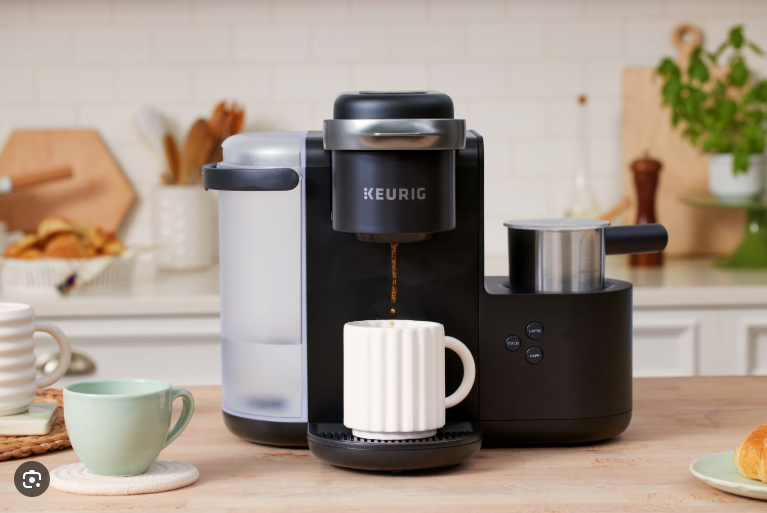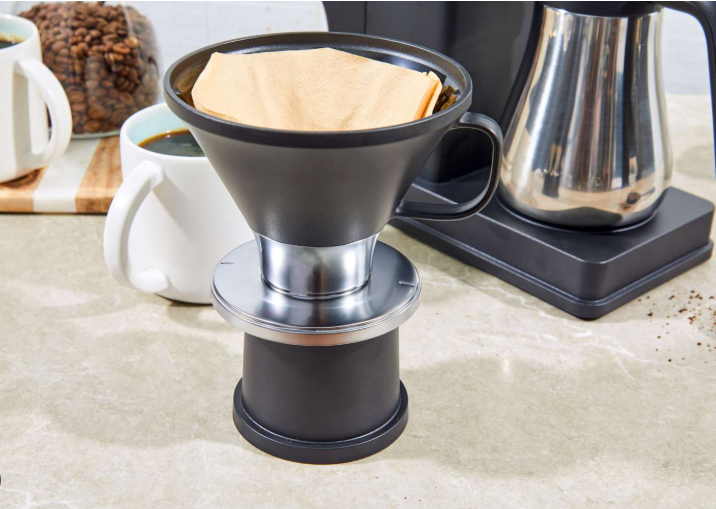If you’re wondering why is my coffeemaker slow, you’re not alone—this common issue can disrupt your morning routine and affect your coffee’s quality. A slow coffeemaker can be frustrating, but understanding the reasons behind why is my coffeemaker slow and how to fix it can get your brews back on track. In this comprehensive guide, we’ll explore the top causes of a sluggish machine, from mineral buildup to improper settings, and provide actionable solutions. We’ll also tie in essential tips on coffeemaker setup, how to use a coffeemaker, coffeemaker cleaning, and coffeemaker maintenance to prevent future slowdowns. Whether you’re using a drip model, single-serve, or even a portable coffeemaker, addressing why is my coffeemaker slow will ensure faster, tastier coffee. Let’s dive into solving this brewing bottleneck.
Common Reasons Why Is My Coffeemaker Slow
Understanding why is my coffeemaker slow starts with identifying the root causes. The most frequent culprits include mineral buildup, clogged components, incorrect grind size, and mechanical issues. Each of these can impede water flow or heating efficiency, slowing down your brew cycle. By tackling these issues, you can restore your machine’s speed and performance.
Mineral buildup from hard water is a primary reason for why is my coffeemaker slow, as it clogs internal tubes, reducing flow. Clogged filters or baskets can also choke the brewing process, another key factor in why is my coffeemaker slow. Incorrect settings or worn parts may further contribute to delays, making it essential to diagnose correctly.
This guide will break down these causes and offer practical fixes to address why is my coffeemaker slow. Regular care, as part of coffeemaker maintenance, can prevent these issues, ensuring your machine runs smoothly. For more brewing solutions, check our coffeemaker resources.
How Mineral Buildup Causes a Slow Coffeemaker
Hard water deposits, or limescale, are a leading reason for why is my coffeemaker slow. Over time, calcium and magnesium from water accumulate in the machine’s pipes and heating elements, restricting flow and slowing brew time. This is especially common in areas with hard water, making it a frequent answer to why is my coffeemaker slow.
Signs of buildup include longer brew cycles or weaker coffee, both clear indicators of why is my coffeemaker slow. Addressing this requires descaling, which we’ll cover in the solutions section.
Step-by-Step Solutions to Fix Why Is My Coffeemaker Slow
To resolve why is my coffeemaker slow, follow these targeted fixes based on the most common causes. These steps align with coffeemaker troubleshooting and will help restore your machine’s speed.
1. Descale with Vinegar to Address Why Is My Coffeemaker Slow
Descaling is the first step to fix why is my coffeemaker slow due to mineral buildup. Mix equal parts white vinegar and water (e.g., 4 cups each) and pour into the reservoir. Run a brew cycle without coffee, pausing halfway for 30 minutes to let the solution work. Complete the cycle, then run 2-3 water-only cycles to rinse.
This coffeemaker cleaning method dissolves limescale, addressing a major reason for why is my coffeemaker slow. Perform this every 1-3 months as part of coffeemaker maintenance to prevent recurrence.
2. Clean the Filter Basket and Components
A clogged filter basket or showerhead is another cause of why is my coffeemaker slow. Remove the basket and rinse under hot water to clear coffee oils and grounds. For single-serve machines, check the needle or pod chamber for debris, a common issue in why is my coffeemaker slow.
Use a soft brush to scrub, ensuring no blockages remain. This coffeemaker cleaning step is crucial for restoring flow and solving why is my coffeemaker slow.
3. Check Grind Size and Coffee Amount
Incorrect grind size can explain why is my coffeemaker slow. Too fine a grind clogs the filter, slowing water flow. Use a medium grind for drip machines, as advised in how to use a coffeemaker. Overloading the basket also restricts flow, another reason for why is my coffeemaker slow.
Measure 1-2 tablespoons per cup and level the grounds. Adjusting this can quickly resolve why is my coffeemaker slow.
4. Inspect and Adjust Machine Settings
Sometimes, why is my coffeemaker slow stems from incorrect settings. Check if your machine is on a small-batch or energy-saving mode, which can extend brew time. Reset to standard settings, as outlined in your manual for how to use a coffeemaker.
If the issue persists, unplug for 10 minutes to reset electronics, a simple coffeemaker troubleshooting fix for why is my coffeemaker slow.

Coffeemaker Troubleshooting for Slow Brewing
Coffeemaker troubleshooting is key to addressing why is my coffeemaker slow. If descaling and cleaning don’t work, check for worn parts like seals or tubes, which may need replacement. This is a less common but possible reason for why is my coffeemaker slow.
For single-serve machines, ensure pods are compatible, as mismatched ones can slow brewing, another factor in why is my coffeemaker slow. If all else fails, consult a professional to diagnose deeper issues.
Advanced Coffeemaker Troubleshooting Tips
In coffeemaker troubleshooting, check water quality—hard water accelerates buildup, a frequent cause of why is my coffeemaker slow. Use filtered water to prevent future issues. For persistent slowdowns, inspect the heating element, as it may struggle to reach temperature.
Coffeemaker Cleaning to Prevent Slow Brewing
Regular coffeemaker cleaning is critical to avoid why is my coffeemaker slow. After each use, rinse the filter basket and carafe to remove residue. Weekly, wash with mild soap to prevent oil buildup, a contributor to why is my coffeemaker slow.
Monthly descaling with vinegar, as described, keeps pipes clear. This coffeemaker cleaning routine is a proactive way to prevent why is my coffeemaker slow from recurring.
Deep Coffeemaker Cleaning for Optimal Performance
For thorough coffeemaker cleaning, disassemble removable parts and soak in vinegar weekly. This deep clean eliminates hidden debris that could cause why is my coffeemaker slow.
Coffeemaker Maintenance to Avoid Slowdowns
Coffeemaker maintenance plays a vital role in preventing why is my coffeemaker slow. Replace water filters every 1-2 months to reduce mineral deposits. Check cords and seals regularly to ensure no underlying issues contribute to why is my coffeemaker slow.
Store your machine in a dry place to avoid mold, which can clog components. Consistent coffeemaker maintenance is the best defense against why is my coffeemaker slow.
Seasonal Coffeemaker Maintenance Tips
In hard water seasons, increase descaling frequency as part of coffeemaker maintenance to prevent why is my coffeemaker slow. In humid climates, dry thoroughly to avoid clogs.
Portable Coffeemaker and Slow Brewing Issues
For a portable coffeemaker, the reasons for why is my coffeemaker slow are similar but scaled down. Mineral buildup or clogged filters can slow even compact models. To address why is my coffeemaker slow in a portable coffeemaker, run a vinegar cycle with a smaller solution (1-2 cups).
Rinse thoroughly after, as portable coffeemaker reservoirs are smaller. Use coarse grounds to prevent clogs in a portable coffeemaker, a key fix for why is my coffeemaker slow.
Portable Coffeemaker Cleaning Tips
For a portable coffeemaker, clean the filter after each use to prevent why is my coffeemaker slow. Regular coffeemaker cleaning keeps travel brews quick.
Coffeemaker Safety When Addressing Slow Brewing
Coffeemaker safety is crucial when fixing why is my coffeemaker slow. Always unplug before cleaning or inspecting parts to avoid shocks, a vital coffeemaker safety tip.
Use gloves when handling vinegar, as its acidity can irritate skin, another coffeemaker safety tip. Ventilate the area during descaling to avoid fumes, ensuring coffeemaker safety.
Handle hot components carefully when checking for clogs, a key coffeemaker safety tip to prevent burns while addressing why is my coffeemaker slow.
Safe Troubleshooting Practices
During coffeemaker troubleshooting, ensure the machine is cool before opening, a coffeemaker safety tip to avoid injury while fixing why is my coffeemaker slow.

Coffeemaker Setup to Prevent Slow Brewing
Proper coffeemaker setup can prevent why is my coffeemaker slow from the start. During coffeemaker setup, use filtered water to minimize mineral deposits, a common cause of why is my coffeemaker slow.
Ensure the filter basket is correctly aligned during coffeemaker setup to avoid flow issues. Run an initial cleaning cycle, as outlined in coffeemaker setup, to keep your machine efficient.
Tips for Coffeemaker Setup
In coffeemaker setup, avoid overpacking grounds to prevent why is my coffeemaker slow. Check your manual for optimal settings during coffeemaker setup.
How to Use a Coffeemaker to Avoid Slowdowns
Learning how to use a coffeemaker correctly can prevent why is my coffeemaker slow. Use the recommended amount of coffee to avoid clogging the filter, a key part of how to use a coffeemaker.
In how to brew coffee in a coffeemaker, stick to medium grinds for drip models to ensure smooth flow. Regularly check settings to avoid slow modes, helping address why is my coffeemaker slow.
Advanced Tips for How to Use a Coffeemaker
As part of how to use a coffeemaker, periodically test brew speed to catch early signs of why is my coffeemaker slow. Adjust water volume for efficiency.
Coffeemaker Tips to Prevent Slow Brewing
Coffeemaker tips to avoid why is my coffeemaker slow include using fresh, coarsely ground coffee to prevent filter clogs. Another coffeemaker tip is to avoid overfilling the reservoir, which can slow the cycle.
Regularly descale as a coffeemaker tip to keep pipes clear, directly addressing why is my coffeemaker slow. For more brewing advice, our coffee guide offers expert tips.
Flavor and Efficiency Coffeemaker Tips
A coffeemaker tip to prevent why is my coffeemaker slow is to clean after heavy use, ensuring optimal flow and flavor.
Best Coffeemaker Guide for Faster Brewing
In this best coffeemaker guide, choose models with self-cleaning cycles to prevent why is my coffeemaker slow. Look for durable designs in the best coffeemaker guide that resist buildup.
The best coffeemaker guide recommends machines with clear indicators for descaling needs, helping avoid why is my coffeemaker slow. For top picks, visit our coffeemaker hub.
Selecting a Coffeemaker to Avoid Slowdowns
In the best coffeemaker guide, prioritize models with easy maintenance to prevent why is my coffeemaker slow. Choose based on your water quality for longevity.
Conclusion: Solve Why Is My Coffeemaker Slow for Perfect Brews
In addressing why is my coffeemaker slow, descaling, cleaning, and proper use are your best tools. Regular coffeemaker cleaning and coffeemaker maintenance prevent slowdowns, while correct coffeemaker setup sets the stage for efficiency. Apply coffeemaker tips like using filtered water and medium grinds to keep your machine fast. Whether at home or with a portable coffeemaker, these solutions ensure quick, flavorful coffee. Prioritize coffeemaker safety during fixes to stay secure. For more on keeping your machine in top shape, explore our coffee guide. Say goodbye to why is my coffeemaker slow and enjoy speedy brews in 2025!
- Key takeaway: Address why is my coffeemaker slow with regular descaling.
- Pro tip: Routine coffeemaker cleaning prevents slowdowns.
- Safety first: Follow coffeemaker safety during fixes.